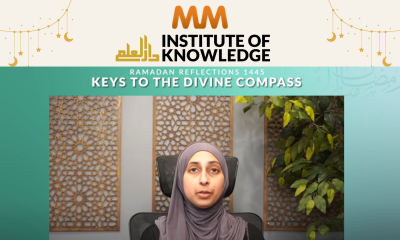“I don’t know why you’d want to live with all that anger and bitterness!” a woman said in response to a survivor who’d expressed that she wasn’t going to forgive her abuser. We were all part of an online group established for sharing inspiring stories about overcoming difficulty and supporting each other on our emotional healing journeys. Watching the exchange, I was tempted to chime in and share my point of view. But I said nothing, my heart telling me that it was best to leave it alone. I already knew how most of these discussions ended: with a forgiveness peddler using emotional manipulation to guilt a survivor into forgiving his or her abuser. In other words, most of these discussions ended exactly how this one had begun.
Previously on other forums, I had attempted to explain how a person could choose not to forgive yet let go of anger and bitterness, heal fully, and live an emotionally healthy and fulfilling life. But the forgiveness peddlers would hear nothing of it. No one’s healing was real except their own. I sometimes spent a considerable amount of time breaking down the definition of forgiveness and contrasting it with the definition of healing to show how one was not a condition of the other. Yet still, even after they admitted to understanding what I was saying, forced forgiveness zealots would return to their tactic of emotional manipulation to insist that anyone who chose not to forgive was suffering from a corrupt heart.
Repeatedly observing these attacks on survivors who had chosen not to forgive made it clear to me that the culture of forced forgiveness was much more widespread and destructive than I’d initially fathomed. And it wasn’t just fellow survivors participating in the emotional manipulation. There were life coaches, religious leaders, and even mental health professionals.
Keep supporting MuslimMatters for the sake of Allah
Alhamdulillah, we're at over 850 supporters. Help us get to 900 supporters this month. All it takes is a small gift from a reader like you to keep us going, for just $2 / month.
The Prophet (SAW) has taught us the best of deeds are those that done consistently, even if they are small.
Click here to support MuslimMatters with a monthly donation of $2 per month. Set it and collect blessings from Allah (swt) for the khayr you're supporting without thinking about it.
Being repeatedly exposed to the hostile environment of forced forgiveness was very similar to what I often experienced from anti-religion zealots who insisted that anyone who believed in God and affiliated with organized religion—especially Islam—was either evil themselves or a passive participant in evil. This misguided conviction gave them license to mock, harass, and slander Jews, Christians, and Muslims at every opportunity, then say to them, “If you want to make the world a peaceful, loving place, then stop worshipping that fake God of yours!” In this, they failed to realize that they themselves were demonstrating the very opposite of the peace, love, and compassion they claimed to desire for the world.
I mention the hostility of anti-religion zealots because the environment of forced forgiveness mirrors it in many ways. In the word forgiveness, we have a phenomenal concept rooted in spreading peace, love, and compassion. However, in the culture of forced forgiveness, the tactics being used to spread this beautiful concept are anything but peaceful, loving, or compassionate. How then can we truly achieve peace, love, and compassion—within ourselves or the world—if we cannot first display these traits in our speech and actions? Moreover, what do we even imagine peace, love, and compassion actually mean if we cannot accept that someone else’s path toward them could look a bit different from ours?
You Don’t Matter: The First Rule of Forced Forgiveness
Ironically, when I found myself the repeated recipient of forgiveness peddling, I had already forgiven the ones who had wronged me. As a Muslim, I understood forgiveness as simply the decision to seek no revenge or punishment for the person in this life or the Hereafter as a result of being wronged. In making this voluntary decision, I opened up for myself the opportunity to even greater reward for my suffering, as I was already promised recompense from God due to being unjustly harmed in the first place. I knew I had full rights to not forgive, and I didn’t imagine that my decision in either direction had anything at all to do with who I was as a human being, personally or spiritually.
It was during my journey toward healing that I encountered forgiveness peddlers who made me feel like there was something inherently evil about me. Even as I had already forgiven those who harmed me, the forgiveness peddlers effectively told me that my depression, physical ailments, and mental suffering in the face of triggers were due to my refusal to forgive the ones who had afflicted the emotional wounds.
This claim confused me, as I hadn’t even vocalized to them that I either forgave or didn’t forgive the ones who had harmed me. Why then did I keep hearing about the necessity of forgiveness when I had already forgiven?
If you’re still hurting, then you haven’t truly forgiven. This would be the answer I ultimately received—over and over again.
Do I Even Matter Here?
In time, I would grow accustomed to the oft-repeated message that I now understand as the first rule of forced forgiveness: You don’t matter. Interestingly, this rule is also the underlying ideology of all abuse itself, hence the title of the book, The Abuse of Forgiveness.
Forced forgiveness teaches us that our wholeness as human beings—and thus our entire existence—is inextricably linked to the sins of those who have wronged, abused, or traumatized us. To understand this puzzling, destructive ideology, I offer the following analogy about a victim of a burglary and destruction of property.
Being the recipient of forced forgiveness is like someone having their most precious belongings stolen from them such that their entire life is turned upside down. They have no bed to sleep on, no clothes to wear, no food to eat, and only the crumbling walls of a home that doesn’t even protect them from the heat or cold. When they ask what they can do to start over, they’re told to use whatever resources they have to give gifts to the thieves. And each time they ask a practical question about restocking what they lost, they’re told to find the thieves and give them whatever they have. If they refuse, they’re told, “You’re still living like this because you’re stingy and greedy in refusing to share with the thieves!”
In the language of religion, forced forgiveness teaches us that God punishes us for suffering abuse. It teaches us that our greatest sin is to feel the pain of our wounds and to feel upset at the ones who inflicted them. It further teaches us that God will decree that we live with corrupt, angry, bitter hearts until we no longer feel or acknowledge the pain of our wounds—or until we no longer feel any frustration or blame toward those who hurt us.
Tragically, the underlying message of forced forgiveness is that mercy and forgiveness are automatic and unconditional for abusers and transgressors, but they are delayed and conditional for the sufferers of abuse and wrongdoing. Moreover, it teaches us that an extra level of punishment from God is inflicted on the sufferers of abuse if they should place any delays or conditions on showing mercy and forgiveness to wrongdoers. In other words, from both the healing and religious perspective, forced forgiveness teaches us that sufferers of abuse don’t matter; only the abusers do.











Ismail
July 30, 2017 at 10:11 AM
SubhanAllah what an interesting perspective with so much truth. As a mental health counsellor, I encourage people to be open to forgiveness which differs from forced forgiveness that is condescending and judgmental. In fact, there is a degree of overlap between forced forgiveness and abuse; the power dynamic is off.
My perspective on forgiveness (as a psychological concept) is that if one is open to it, it is done for one’s own sake. For some, the practice of forgiveness helps in healing. But forgiveness isn’t the only path to healing as you pointed out. And it should never be forced.
Margaret Nahmiad
August 2, 2017 at 1:15 PM
The Christian model of forgiveness is based on what Jesus did for us Because Jesus died to forgive the unforgivable we have no right to hold a grudge against Jesus on the cross said forgive them father for they know what they do. In the Lord Prayer it says forgive us sins as we forgive those who sin against us the story of Joseph provides a good example of forgiveness despite his brother selling him into slavery. I do agree it should not be forced though as way to avoid pain
Mia
September 30, 2017 at 6:08 PM
Subhanallah! I really felt what this article is trying to convey as I myself have grappled with this concept having been hurt repeatedly by family members and then being demanded (by them or others) to forgive them “or else you will be a bitter loser!” Alhamdulillah, I have forgiven them in that I have accepted what they’ve done as destined to have happened to test me and will not seek revenge, but I don’t want to deal with them as they are unless they change since I also need to protect myself from their oppression. They are insulted by my not forgiving them (maybe because the power dynamic is off?)
I think the author’s term “Abuse of Forgiveness” is highly accurate. Forcing forgiveness should not be done. It can be encouraged perhaps if it’ll help a victim heal, but not forced if it is clear that it will not help a victim heal. Each case is different. Forgiveness is a rightful choice on the part of the victim and cannot be demanded, as even in the Hereafter, Allah Subhanahu wa Ta’ala gives humans the right to take each other’s good deeds if we wronged each other and choose not to forgive! We can beg Allah to forgive us, and that involves remorse, right? I think within human interactions, forgiveness should be sought from the victim by the abuser in a sincere, remorseful, and humble way (without further abuse), otherwise, the victim retains the right to not forgive. I’m not saying anyone should be bitter, but I do feel like some victims need to hold on to their right not to forgive until they are emotionally able to process how to deal with whatever wrong-doing happened to them.
I ask Allah to forgive me and all Muslims and guide us in our hearts and actions, Ameen! May Allah bless the author, and I thank her for sharing her personal insight as an example for the rest of us in similar situations.
Troy
April 6, 2019 at 2:05 PM
First of all I think the word “forgiveness” is being wrongfully used. The dictionaries description of “forgiveness” differs from the way abuse victims are using that word to suggest they have forgiven in order to achieve inner peace. If you forgive someone for the sake of preventing yourself from experiencing further grief over the events that transpired and this “forgiveness” is never mentioned to the abuser because you’re doing it not for them but yoyr own recovery…THEN THAT IS NOT REALLY THE DEFINITION OF FORGIVENESS. There needs to be another word to describe that type of process that one takes in order to heal, perhaps we should call it “SUPRESSION” because that’s basically what it is, it’s supressing your thoughts aboutcthe sbuse and the abuser in order to avoid it from inflicting you further pain.